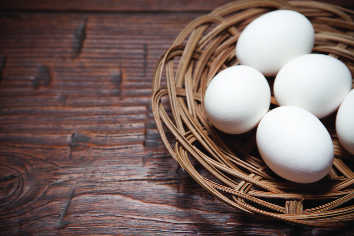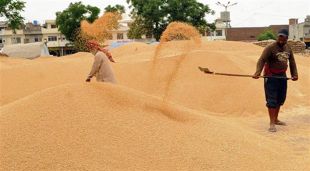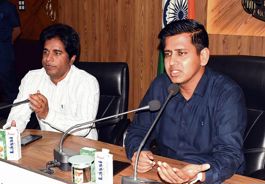
Photo for representation only.
Rio de Janeiro, December 1
A team of Brazilian and Chinese paleontologists have announced the discovery of about 300 fossilised eggs and skeletons of pterosaurs, a number of them quite well-preserved.
Molds and casts of the eggs and the bones found by the team will be on display starting Friday at the National Museum here, Efe news reported.
The fossils, some of them of embryos with the bones preserved in three dimensions, were found in 2015-2016 in the northeastern Chinese region of Hami, and they were analysed and described in a joint project by Brazilian and Chinese dinosaur experts.
The discovery, which is discussed in the most recent issue of Science magazine, was presented on Thursday at a press conference at the National Museum of the Federal University here.
"It's the first time that embryos have been found in a three-dimensional and uncompromised condition, which has allowed many (embryological) details to be seen regarding these flying animals," said Brazilian paleontologist Alexander Kellner, one of the leaders of the research team.
Kellner emphasised the importance of the large quantity of eggs: "They're very fragile, which always makes their preservation difficult." Pterosaurs are a group of extinct winged dinosaurs that were the first known vertebrates to be able to fly.
One of the key contributions of the study was to discover how, at birth, the reptiles had wing bones less developed than their leg bones, leading experts to conclude that they could not fly until they had gotten somewhat older.
"They could have walked but certainly they were not able to fly at first, and so the main contribution of the study is to show that pterosaurs, at birth, required parental care," Kellner said.
"Among the behavioural characteristics of these animals that we discovered is that they formed nesting colonies, where several families came to the same sites to lay their eggs and always returned to these areas, implying that they were areas favourable for nest-building.
The National Museum is celebrating its 200th anniversary. — IANS.



























